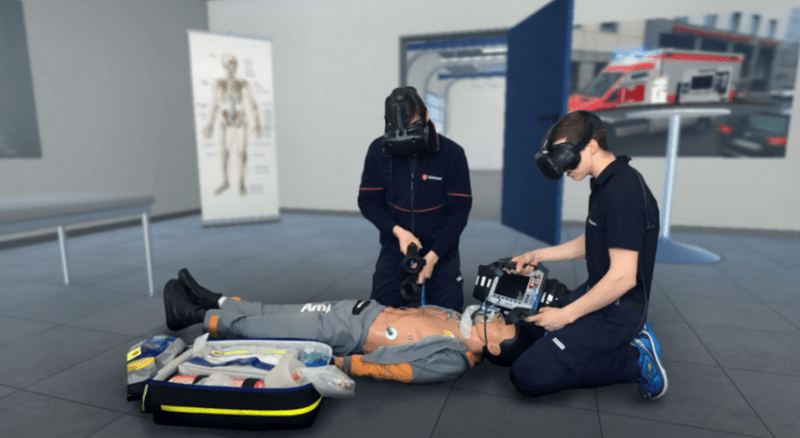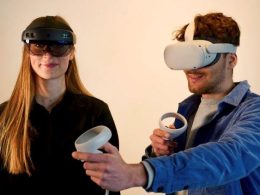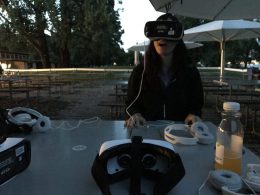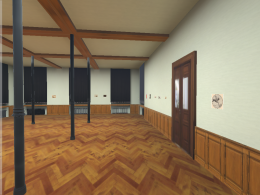The Inselspital Bern not only uses virtual reality in training, but also shows in a study that emergency patients can reduce their pain and anxiety with the help of virtual applications in acute cases.
A car accident claims several injured, there is hectic and chaos, decisions have to be made quickly. A young emergency doctor is on the scene, gets an overview and then decides who needs the most urgent care. Highly concentrated, she carries out hand movements and medical measures that ultimately decide between life and death. Then the relieving news: the patient is stable.
The doctor takes off her VR goggles; she has passed the emergency exercise. In 2020, the University Clinic for Emergency Medicine at the Inselspital in Berne launched the Virtual Island Simulation Lab (VISL), which among other things deals with the use of virtual reality in the field of medical education, further education and training. Real-time physiology enables learners to receive direct feedback for their actions. The virtual simulation makes it possible to learn typical, life-threatening emergency simulations independent of location and tutor.
Practising by means of VR simulation
The emergency doctors practise rare but high-risk interventions here using VR simulation. Exercises that would be too expensive or dangerous in reality, for example with hazardous substances or fire. There are almost no limits to the development of VR training - at Inselspital, these range from simple skills training such as handling personal protective equipment to highly complex procedures such as inserting a catheter into the aorta of a severely injured patient.
Patients benefit from virtual reality
For patients, on the other hand, immersion in another world through VR glasses can have a relaxing and anxiety-relieving effect; it can distract them from pain. The University Emergency Centre at Inselspital conducted a pilot study with 52 emergency patients. They were all whisked away to a virtual walk in the woods or to the beach using VR glasses. The result: the pain of the study participants was reduced by an average of 1.5 points and the anxiety by 2 points on the ten-point scale.
The Inselspital is one of the pioneers in the field of VR in medicine. We have already made use of various applications reports.
Source: Medinside / VISL









